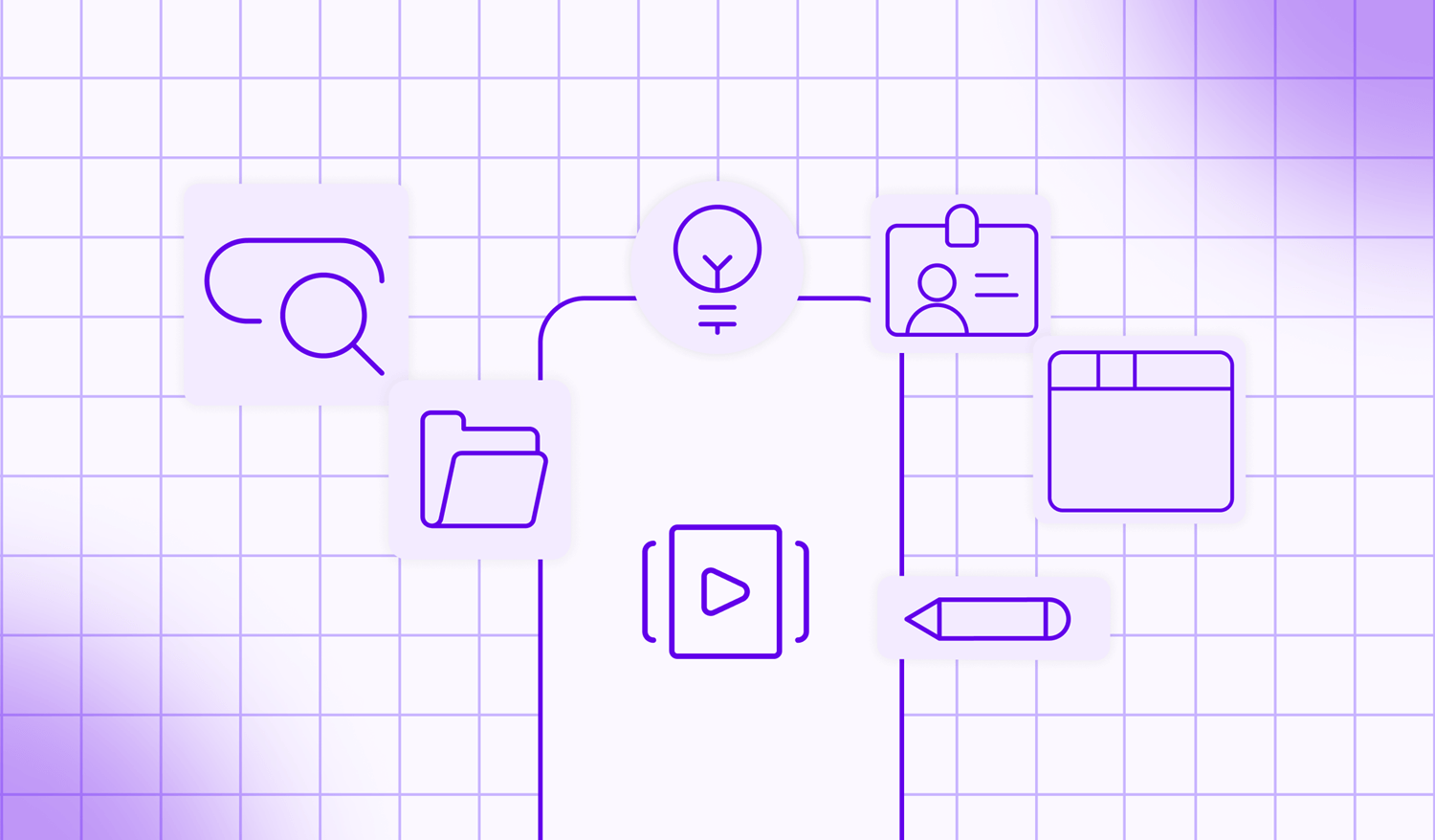It’s hard to believe that ChatGPT was rolled out to the public just over a year ago. And what a year it’s been.
On the one hand, the democratisation of AI has led many to a fair amount of lost sleep. For example, whether it’s misleading deep-fakes or intellectual property rights violations, AI dominated news cycles and public conversation.
On the other hand, millions of people are now revelling in the technology’s capacity to automate mundane tasks and help them complete more complex ones more efficiently. Not only that, but AI has also shown its ability to achieve truly remarkable feats like diagnosing health conditions, while delivering a level of personalisation we’ve never experienced before.
Question is, what does 2024 have in store?
In this blog, we’ll explore that in detail, while also rounding up all the key events from this year and touching on the biggest Builder.ai AI developments.
AI in 2023: Key takeaways
2023 saw a step change in the adoption of AI. Here are the key highlights from across the year 👇
1 - Generative AI exploded
If you were to ask people what they think AI is, they’d most likely tell you it’s a tool used for generating human-like responses to prompts. This is because 2023 has been the breakout year for generative AI, especially GPT-3 by OpenAI and Bard by Google.
Generative AI algorithms use existing data to create new artefacts like text, images, audio, product designs and software codes. These AI algorithms are powered by foundation models that are trained on different sets of data and can multitask to perform out-of-the-box tasks.
Today, generative AI is being used in many ways, like improving customer service through chatbots, exploring and sorting vast amounts of unstructured data, innovating drug and chip designs, developing material sciences and much more.
In 2024 and beyond, generative AI will become a general-purpose technology, much like the internet or a computer and we’ll see it being used in places we might not imagine.
Like Bing, for example.
The search engine recently introduced Search Generative Experience (SGE) in its search results pages along with regular web search, while Google is testing their beta version for SGE available through Search Labs.
Here’s what Builder.ai’s Technical SEO Manager, Surendra Dhote, had to say on the topic 👇
Search engines are evolving to function as intuitive co-pilots, enhancing the user experience through highly personalised search interactions. This transformative shift goes beyond mere information retrieval, with search engines actively adapting to individual preferences and behaviours.
2 - Voice took centre stage
“Alexa, play Led Zepplin songs.”
Well, aren’t we all familiar with these commands?
Voice or speech is the most natural way to communicate for us humans and AI plays a huge role in understanding our natural language. Although Language AI has been mature for some time, 2023 has seen dramatic adoption of the technology.
According to a 2023 survey, almost 82% of respondents confirmed the usage of voice technology and 66% consider voice-enabled experiences to be important for their organisation’s future strategy.
By Language AI, I mean several types of technologies. Firstly, there are voice AIs that automatically recognise speech and understand natural language. And then there are conversational AIs, like intelligent virtual assistants and chatbots, that can engage in a two-way dialogue and even start a conversation.
Today, there are many voice assistants being developed for specific purposes. These assistants can be fully integrated with enterprise applications like software development, meeting summaries, workflow tools and calendar planning.
But one that goes further than anything on the market right now is Natasha, the world’s first AI product manager, which can help you create any app you want.
You simply need to share your idea and Natasha:
- Recommends the features you need based on the type of app you’re building
- Generates instant prototypes
- Recommends the best-suited developer for your project
- Tests and checks your code to spot any issues
- Helps deliver your app on time by reallocating resources as needed
3 - Demand for intelligent apps surged
Intelligent apps, or I-apps, are the ones that use AI and data (real-time and historical) to make smart decisions and deliver highly personalised user experiences. I-apps continuously learn the behavioural and contextual patterns of a user and provide them with relevant information that helps them make decisions.
2023 has seen a strong demand for intelligent apps powered by AI, which is only going to increase further. According to Gartner, by 2026, 30% of all new apps will use AI to drive personalised user interfaces, up from 5% today.
Intelligent apps drive automation and adaptiveness. For instance, an intelligent insurance app can automatically buy home insurance when it predicts flooding in an area after monitoring the weather and satellite data.
The key takeaway here is that rather than running after yet another feature, more and more entrepreneurs and businesses are adding AI to their apps and making them intelligent as they want to establish themselves as leaders in their industries.
4 - Investments in AI increased
What if I told you that major corporations like Alphabet, Apple and Meta aren’t the ones driving the AI revolution? According to Nasdaq, major breakthroughs in AI in 2023 have been made by small startups.
To ensure they lead the conversation, tech giants are investing billions of dollars into AI startups so that they can introduce AI applications to potential customers.
The biggest investments in the AI industry have come from Microsoft. At the start of 2023, Microsoft made a $10 billion investment in OpenAI to become an exclusive partner for commercialising AI technologies.
Come May, Microsoft also partnered with Builder.aito develop apps using Natasha - the world’s first AI product manager. Builder.ai uses a software assembly line that helps businesses develop apps without requiring technical expertise.
Demonstrating further confidence in Builder.ai’s AI-powered platform, the Qatar Investment Authority (QIA) invested $250 million in the Series D round, bringing the total amount raised by the company to $450 million.
The investments in AI in 2023 have been at an all-time high, where more than 25% of all investment dollars in US startups have been invested in AI-related companies, up from 12% between 2018 and 2022.
AI in 2024: Predictions
In 2024, we’ll continue to see the role of AI increase in a wide range of industries, and at a much faster pace. Here’s what you need to know 👇
1 - AI-powered software builders will come to the fore
The software industry has long struggled with a low supply of developers. But in 2024, AI-powered builders will help bridge the supply and demand gap for software developers.
AI-powered builders automate many of the mundane tasks in software development and help developers build software quickly. They use AI algorithms to create code, optimise design and automate the testing process.
Builder.ai, for example, uses a unique approach to leverage AI capabilities in app development. We’ve set up an AI-powered software assembly line using our AI product manager, Natasha, to simplify the whole app development process.
Natasha does this by using the Builder Knowledge Graph (the brain) to guide you as you conceptualise and design your app. She:
- Uses an arsenal of data and machine learning algorithms to offer you feature and template recommendations
- Creates original and realistic visuals of what an app could look like using textual input
- Turns app ideas into a set of features, splits a project into parallel streams for a faster build, selects the best developers, sets clear timelines and calculates accurate budgets; all of which was previously only possible manually
- Ensures quality of the app’s approved designs and codes; although this process still involves human testing again, it significantly reduces testing time from 2-3 weeks to 60 seconds
Ultimately, Natasha has made a time-consuming operation into a smooth, predictable and repeatable process, providing unrivalled transparency and consistency.
2 - The conversation around AI regulation will intensify
In 2023, much has been debated about the regulation of AI, and in 2024, we’ll see all of that come into effect. AI regulation will help legislators see what AI technology is going to be used for, what the potential risks are and what type of data is being collected.
Leading nations, including the UK, USA, China and India, are already working on framing comprehensive AI policies. The UK has already proposed a bill that will come into effect in 2024, while the EU is also working on one.
In 2024, this is going to be important because, while the vast majority of AI doesn’t pose a risk to society, there are some variations of the technology that could lead to undesirable outcomes. Therefore, AI needs to be transparent and should be labelled to understand what’s their use case and what’s coming out of them.
And to answer this, our Founder and Chief Wizard, Sachin Dev Duggal, puts it:
When it comes to AI transparency and labelling, it really comes down to the risk profile. One must ask themselves:
Is this AI touching civil liberties? Is it a risk to core infrastructure, or on the other hand, is it increasing productivity? Is it empowering people to be able to do something they weren’t able to do earlier because they didn’t have the technical or artistic expertise?
I think in the former two examples, the need for a label is not critical, but in the first two, a warning or a label is quite important.
3 - Quantum AI’s role will increase
For the uninitiated, quantum computers are new-age computers that are not limited to binary states of 0s and 1s; instead, they use qubits that can exist in multiple states at once.
What does this mean for us? Well, they’re 158 million times faster than today’s supercomputers (and no, that’s not a typo). Although classical computers have been working flawlessly with artificial intelligence, their computational power is a limitation.
Quantum AI, where quantum computing is used for training artificial intelligence, can help achieve results that are simply not possible with today’s supercomputers.
There are many organisations that are creating quantum algorithms for decision-making, learning, search and game theory. For instance, Google Quantum AI is already developing tools for researchers to operate beyond classical capabilities.
As 2024 unfolds, we’ll see the increased use of quantum computers to train machine-learning algorithms and create optimised models.
4 - AI-based cyber resilience will be implemented
Cybercrime has been on the rise and the most vulnerable have been organisations with few security measures. Hackers are weaponising machine learning AI models to find vulnerabilities.
In 2024, more and more organisations will use AI defensively to detect and respond to cyber threats. Organisations need to use AI proactively for the detection of irregular behaviour and look for patterns that may lead to cyberattacks.
AI-based cyber security has the ability to analyse huge amounts of data, which helps in detecting potential cyberattacks. It works as a proactive defender that improves detection efficacy and increases system resiliency.
AI-based security systems don’t just save organisations from attacks but also ensure swift recovery. In cases of intrusion, AI quickly identifies the damage and orchestrates the recovery process.
All of these factors make it a more-than-worthwhile investment.
The fall forward
As Denzel Washington puts it, “I don’t want to fall back on anything; I want to fall forward.” This is a mantra we’ll be putting into action in 2024 and beyond.
How?
Well, we’re giving more power and capabilities to our AI product manager, Natasha, by incorporating her everywhere, where she’ll be your constant companion.
Over the past couple of years, Natasha has been the driving force behind numerous successful app launches worldwide, providing a guiding hand through the entire process of app ideation, design and development.
But now she’s grown, learned and stands ready to be an even more integral part of our software development assembly line.
Here’s what you need to know about Natasha Everywhere 👇
- Natasha as a platform - soon, you’ll be able to bring Natasha to any digital platform and she’ll tailor your customers’ experience each time they land, remembering who they are and helping them get what they need
- Voice into code - Natasha will transform spoken words into user stories and application code
- Your enterprise digital transformation companion- Natasha is more than a tool; she’s a partner. She’ll connect meetings and documents throughout your app project to streamline the journey from concept to reality
- Inspire and insight - beyond functionality, Natasha will inspire and suggest thoughtful enhancements, based on the apps she’s helped to build before
Natasha is not just a feature. She integrates seamlessly into your workflow, providing support, guidance and innovative solutions at every step – eliminating any fear of failing from our customers. We want to ensure that the journey from idea conception to product realisation to measured successful outcome is smooth, efficient, and free from misunderstandings. – Sachin Dev Duggal, Founder and Chief Wizard of Builder.ai
Want to start your app project with us?
Book a demoSpeak with one of our product experts today.
By proceeding you agree to Builder.ai’s privacy policy and terms and conditions

Entrepreneurial senior management executive of fast growing technology businesses. Successful in taking ideas from concept to profitability, using a blend of lean, agile and rapid result methodologies. A background in building and managing cross-functional and hybrid teams, with a record for retaining talented individuals and delivering results. Skilled in developing and maintaining a clear product and project vision, strategy and roadmap. Willing and able to adapt to changing environments. Often named as a Crisis Manager with a vision to “Make Things Happen”.













 Facebook
Facebook X
X LinkedIn
LinkedIn YouTube
YouTube Instagram
Instagram RSS
RSS


